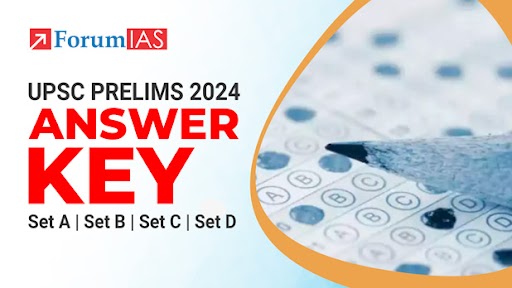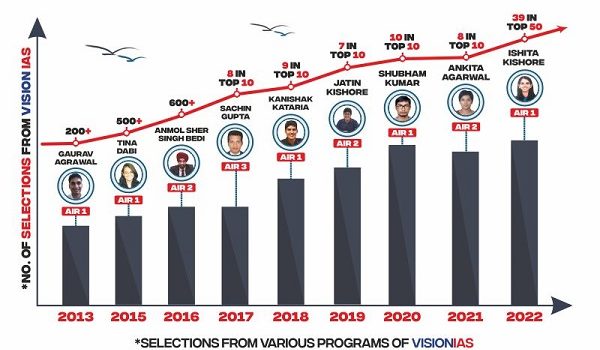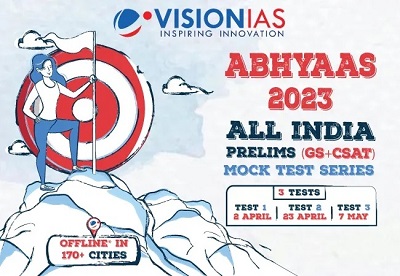Cracking the UPSC Civil Services Mains is not just about accumulating knowledge-it’s about showcasing that knowledge in the most impactful way possible. The difference between an average answer and a top-scoring one often lies in the details: how well you present your ideas, the precision of your revision, and how effectively you’ve practiced under exam-like conditions.
In this blog, we’ll delve into three critical strategies that can significantly boost your Mains preparation: mastering the art of answer presentation, utilizing Vision IAS’s Mains 365 resources, and honing your exam skills with the Abhyaas Mains simulation tests.
1. Mastering Effective Presentation in Answers
In the UPSC Mains exam, how you present your answers can make a significant difference in your score. Content is undoubtedly the king, but presentation is the queen that can elevate your answers from good to outstanding. Here’s how to refine your answer presentation:
A. Smart Techniques for Enhanced Presentation
- Underline Key Points: Highlighting important keywords and phrases can make your answers more reader-friendly, helping the examiner quickly grasp the critical elements of your response.
- Use Headings and Subheadings: Breaking down your answers into sections with clear headings and subheadings not only organizes your content but also makes it easier for the examiner to follow your argument.
- Incorporate Illustrations: Facts, Diagrams, charts, tables, and flowcharts are powerful tools for simplifying complex concepts and making your answers more impactful. For example, using a flowchart to explain a process or a table to compare data can significantly enhance the clarity of your answers.
- Maintain Clarity and Cohesion: Organize your thoughts cohesively, ensuring your answers address the demand of the question directly. Avoid unnecessary jargon and focus on delivering clear, concise, and relevant information.
B. Benefits of Effective Presentation
- Saves Time: A well-organized answer is quicker to write and easier to review.
- Efficient Use of Space: Properly spaced paragraphs and bullet points help you present more information in a clear and concise manner.
- Enhanced Readability: Answers that are easy to read are more likely to be appreciated by the examiner.
- Better Organization of Information: Structured answers help convey your points logically, leaving a positive impression.
- Simplifies Complex Concepts: Creative illustrations and visual aids can make even the most complex content easy to understand.
C. Smart Techniques in Practice
For subjects like history, geography, environment, and economics, using maps, timelines, and charts can greatly enhance your answers. For instance, in a history answer, a timeline can effectively showcase the sequence of events, while in geography, a well-labeled map can illustrate locational aspects clearly.
D. Avoid Common Pitfalls
- Avoid Untidy and Unlabeled Illustrations: Ensure that all visual aids are neat, properly labeled, and add value to your answer.
- Don’t Overuse Visuals: Use illustrations judiciously. Overloading your answers with visuals can be counterproductive.
- Avoid Irrelevant Content: Ensure all parts of your answer are directly relevant to the question.
2. Utilizing Mains 365 Resources for Quick and Comprehensive Revision
While content mastery is essential, having the right resources can make a significant difference in how you approach your revision and answer writing. VisionIAS’s Mains 365 resources are designed to cater to the diverse needs of UPSC aspirants, ensuring they are well-prepared for the Mains exam.
A. Mains 365: Comprehensive Coverage
Mains 365 is Vision IAS’s flagship resource, offering in-depth coverage and analysis of current affairs across various subjects, including Economy, Polity, Science & Technology, Environment, and Social Issues. This document is ideal for aspirants who need a thorough understanding of the year’s significant developments and how they connect with the static syllabus.
B. Quick Facts: Mains 365
For those crucial moments of last-minute revision, Quick Facts: Mains 365 offers a distilled version of the comprehensive Mains 365 document. This resource focuses on the most essential data, facts, and examples that can be directly integrated into your answers. Whether it’s a diagram, a key fact, or a critical piece of data, Quick Facts ensures that you have high-impact information at your fingertips, ready to use on exam day.
C. Summary: Mains 365
The Summary: Mains 365 document is perfect for efficient and effective revision. It condenses the extensive content of the comprehensive Mains 365 into a more manageable format, focusing on the most critical points. This is especially useful for students who are nearing the exam date and need to revise quickly without compromising on the quality of their preparation.
D. How to Use These Resources
- Incorporate Quick Facts: Use Quick Facts for a final glance through before entering the examination hall. This ensures that you have the most important data and examples fresh in your mind.
- Leverage the Summary Document: Use the Summary document for rapid revision of key concepts, helping you to cover a lot of ground in less time.
- Comprehensive Study with Mains 365: Rely on the full Mains 365 document for deep dives into current affairs, ensuring a well-rounded understanding that can enrich your answers.
3. Simulating Real Exam Conditions with Abhyaas Mains 2024
As you refine your content and presentation, it’s equally important to test your preparation in a real exam-like environment. This is where Abhyaas Mains 2024 comes into play.
A. What is Abhyaas Mains?
Abhyaas Mains is Vision IAS’s flagship mock test series, designed to simulate the actual UPSC Mains exam environment. Conducted in 40+ cities across India, Abhyaas Mains helps aspirants acclimatize to the exam pattern, timing, and pressure, ensuring they are fully prepared for the real thing.
B. Benefits of Abhyaas Mains
- Trusted by Toppers: Many successful candidates have used Abhyaas Mains to gauge their readiness, with a clear correlation between their Abhyaas scores and final UPSC Mains marks.
- Realistic Exam Conditions: Experience the pressure, timing, and rigor of the Mains exam, allowing you to fine-tune your strategy and time management.
- Valuable Feedback: Receive detailed feedback to further improve your answer writing skills and strategies, ensuring that your preparation is on par with the best.
C. How to Make the Most of Abhyaas Mains
- Assess Your Performance: Use the All India Percentile to gauge where you stand among your peers and identify areas for improvement.
- Refine Your Strategy: Based on the feedback and your performance, adjust your preparation strategy to address any weaknesses.
- Build Confidence: Repeatedly practicing in a simulated environment helps build confidence, ensuring that you can perform at your best on the actual exam day.
Conclusion
Success in the UPSC Mains exam is not just about what you know but how effectively you can present that knowledge. By mastering presentation techniques, leveraging the Mains 365 resources, and simulating the real exam environment with Abhyaas Mains 2024, you can significantly enhance your chances of success. These tools and strategies are designed to complement each other, providing a comprehensive approach to UPSC Mains preparation. Make the most of these resources, refine your strategy, and approach the exam with confidence.
Visit us at: https://visionias.in/abhyaas/login-form.php
Or Call us at: 8468022022, 9019066066






